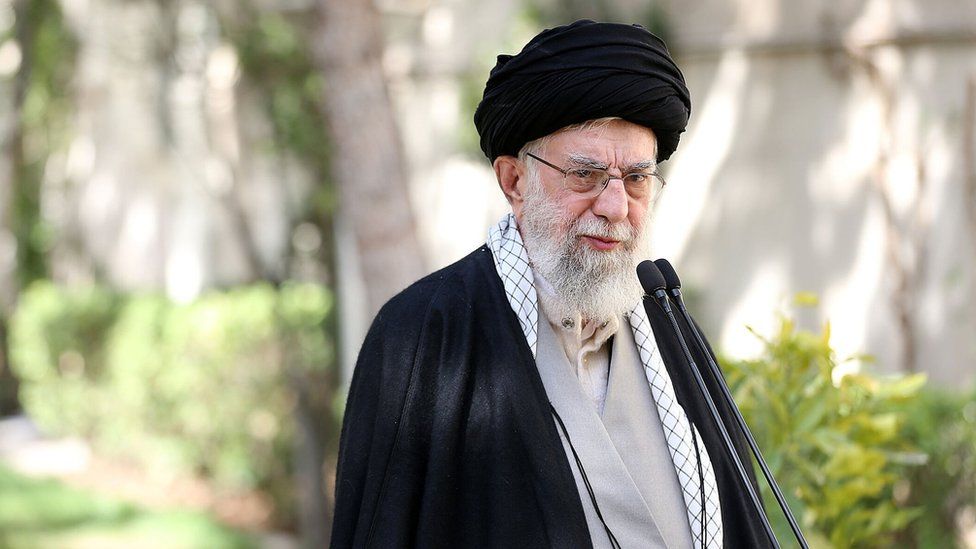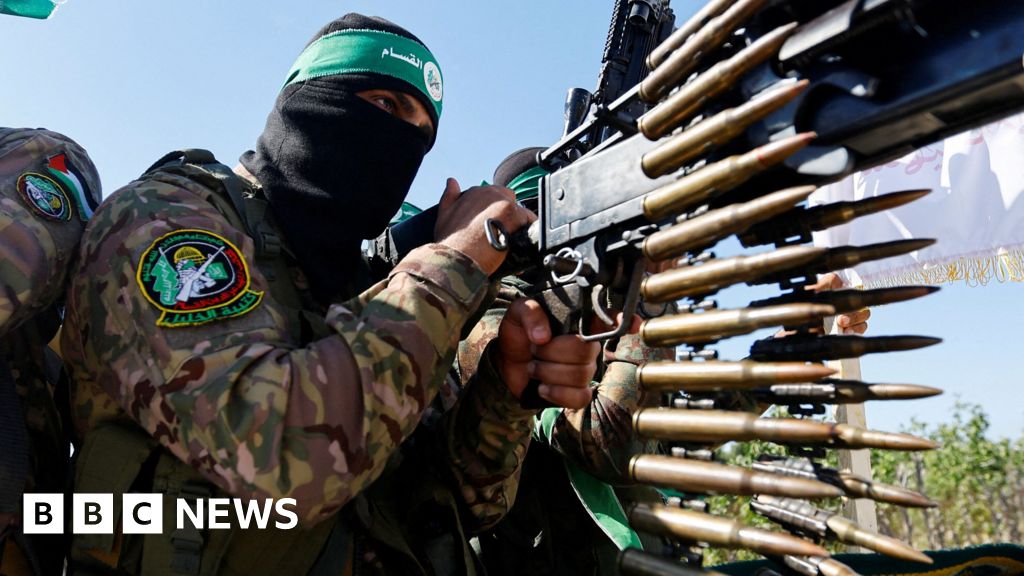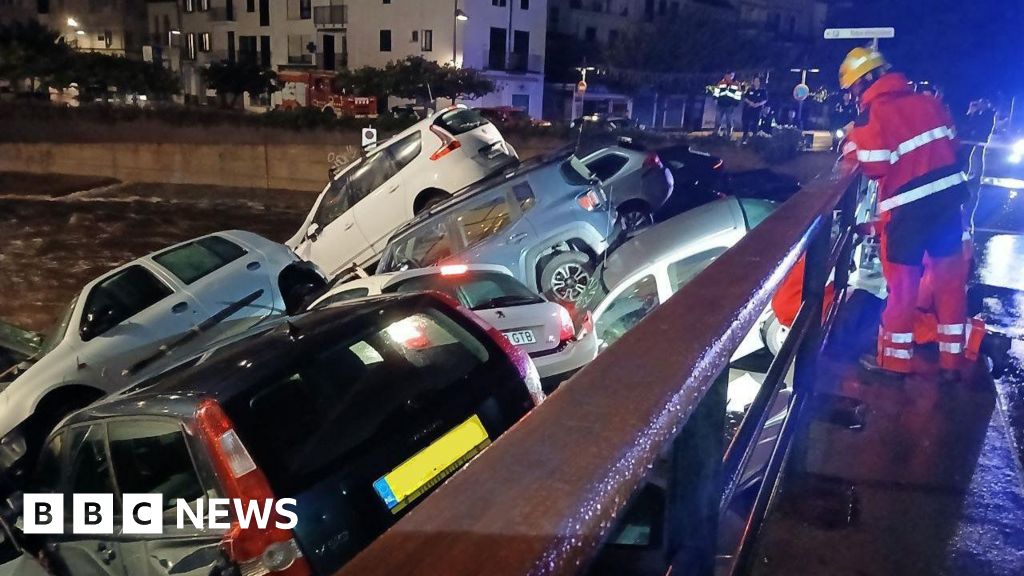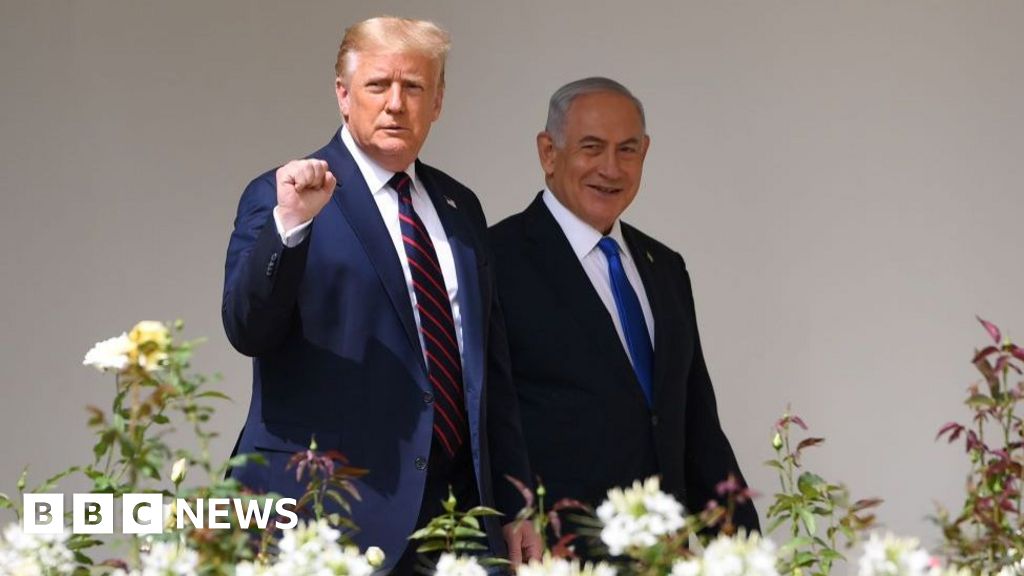ARTICLE AD BOX
 Image source, EPA
Image source, EPA
Ayatollah Ali Khamenei said there would be "no pardons" if anyone was identified as a perpetrator and convicted
Iran's Supreme Leader Ayatollah Ali Khamenei has called the wave of suspected poisonings of schoolgirls in recent months an "unforgivable crime".
"If there are any people involved in the matter, and there certainly are... the perpetrators must be given the most severe of punishments," he warned.
More than 1,000 girls at dozens of schools have been affected by unexplained illnesses since November.
Incidents were reported in at least 15 cities and towns on Sunday alone.
Authorities have released very little information about their investigations and announced no arrests, but they have accused Iran's "enemies" of using the suspected poisonings to undermine the clerical establishment.
Some Iranians believe the girls' schools are being targeted by hard-line elements to stop them receiving an education.
Others suggest the authorities may be punishing girls for their leading role in the nationwide anti-government protests that erupted in September.
Skip twitter post by Parham Ghobadi
This horrifying footage shows dozens of Iranian girls gasping for breath at a school.
Thousands of girl students have been poisoned in Iran in apparent gas attacks since November. The scope and scale is expanding on a daily basis. pic.twitter.com/YvBQLzZFrl
The BBC is not responsible for the content of external sites.
The first known case was reported at a school in the Shia holy city of Qom on 30 November, when 18 schoolgirls fell ill and were taken to hospital.
Since then, a total of 127 schools in 25 of Iran's 31 provinces have been affected, according to a tally by the reformist news outlet Etemad Online.
Students have said they smelled tangerine or rotten fish before falling ill. Many have suffered respiratory problems, nausea, dizziness and fatigue.
In his first public comments on the matter Ayatollah Khamenei called on law enforcement and intelligence agencies to "seriously pursue the issue".
"The poisonings are a grave and unforgivable crime," he declared during a speech at a tree planting event in Tehran, adding that there would be "no pardons" if anyone was identified as a perpetrator and convicted.
Judiciary Chief Gholamhossein Mohseni Ejei meanwhile warned that they could face the charge of "corruption on earth", which is punishable by death.
He also said special courts would be set up in each province to summon "lie-spreaders and disrupters of public opinion in the case of the poisonings".
Their remarks came a day after a series of suspected poisonings was reported in at least 15 cities and towns, with the south-western city of Ahvaz and the central city of Yazd said to have been worst affected.
Opposition activist collective 1500 Tasvir posted footage that it said showed girls at Fatemieh Art School in the western city of Hamadan shouting: "We don't want to die."
In another video, a woman in the northern city of Rasht said security forces had fired tear-gas at concerned mothers protesting outside the local education department.
On Saturday, Interior Minister Ahmad Vahidi said that investigators had gathered "suspicious samples" at affected schools, but provided no details.
Health Minister Bahram Eynollahi meanwhile told a conference last Tuesday that research indicated that "a kind of mild poison caused the intoxication".
1500 Tasvir tweeted on Sunday that it had "received the results of 25 blood tests from poisoned students in different cities" and that the "MCV number in all of them is lower than normal".
The MCV, or "Mean Corpuscular Volume" count, measures the average size of red blood cells, which are responsible for transporting oxygen from the lungs to other parts of the body.

 1 year ago
19
1 year ago
19








 English (US)
English (US)